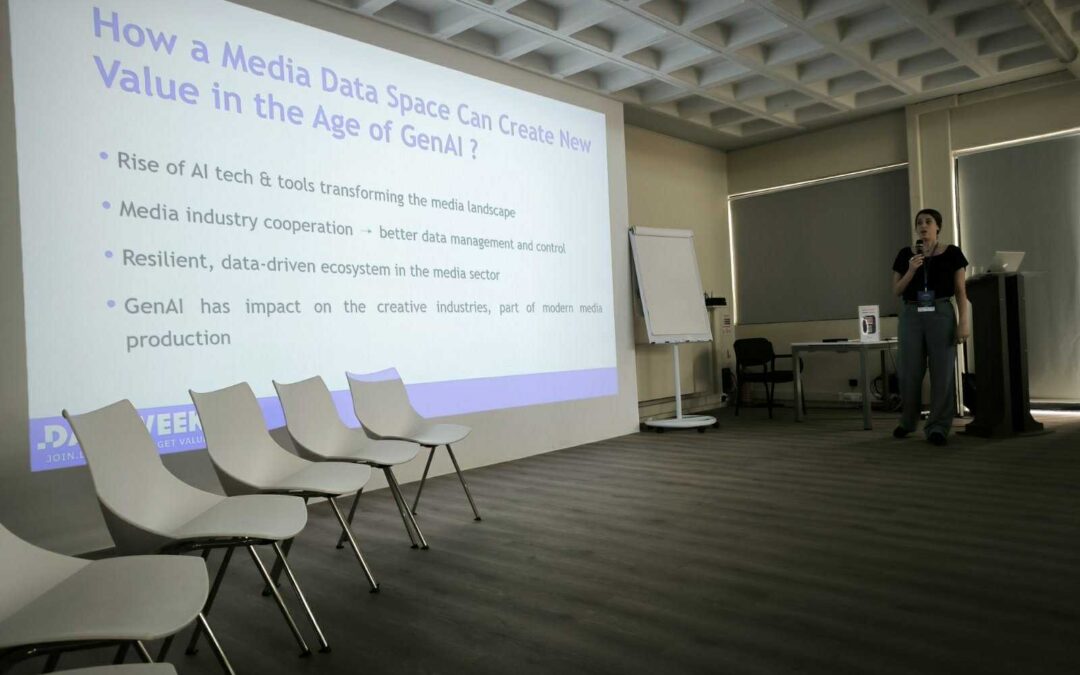Let’s not pretend GenAI is just another passing trend in the media industry. It’s already reshaping how news is produced, distributed, and consumed. But here’s the catch: much of the data used to train these systems doesn’t come from transparent, ethical, or even legal sources. That’s a problem—especially for European media.
At Data Week 2025, we presented a clear case: the EU media sector is under threat, and it goes beyond valuable content being reused without consent. It’s about public trust. Generative AI models trained on low-quality or misleading data are accelerating the spread of fake news. The credibility of journalism hangs in the balance.
TEMS is designed to shift that balance. Not with more regulation alone, but with infrastructure. Our vision for a secure, interoperable Media Data Space starts by putting verified, high-quality data back in the hands of content creators. It’s a data ecosystem built on trust, designed for transparency, and aligned with European values like IP respect, fair compensation, and legal compliance.
Through our collaboration with EDMO and partners like AFP, APA, dpa, and others, we’re piloting something that scales seamless integration of fact-checking data into a shared infrastructure. The goal? Enable GenAI to serve instead of subverting the mission of quality journalism.
There’s no silver bullet against disinformation, but TEMS believes in practical enablers: trusted data sources, transparent governance, and a networked ecosystem that supports innovation while protecting integrity. If GenAI is here to stay, then so must be the rights and recognition of those who fuel it with credible content.
Media innovation without responsibility is just disruption. The Media Data Space offers a way forward: a strategic foundation where AI innovation and media trust don’t just coexist—they reinforce each other.
Because in the fight against disinformation, infrastructure matters.
